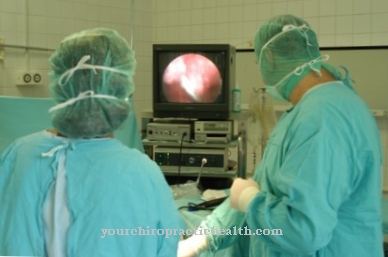At a Hormone replacement a hormone deficiency is compensated by the administration of synthetic or natural hormones. It is irrelevant whether the deficiency is absolute or relative. The synonym for hormone substitution is considered to be Hormone replacement therapy.
What is hormone replacement?

Hormone substitution refers to the replacement of missing or insufficiently concentrated hormones by the administration of synthetic or natural hormonal agents. Hormone replacement is often referred to as hormone replacement therapy. The term hormone replacement therapy in the narrower sense is often used in connection with the administration of medication during the menopause or during gender reassignment measures.
However, hormone replacement affects all hormones. This is how insulin is administered when the blood sugar is too high. Thyroid hormones are administered when the thyroid is underactive. The administration of the growth hormone somatotropin takes place with short stature. After all, postmenopausal symptoms are often treated with estrogens. There are hormone substitutions that are absolutely necessary for survival.
Other hormone therapies are used to relieve symptoms. However, sometimes serious side effects can result. An example of this is hormone treatment during climacteric in women and climacteric virile in men.
Function, effect & goals
Hormone substitutions often have life-saving effects in humans. A hormone always has to be replaced when it is missing or when its concentration in the body is far too low. Hormones are essential for the functioning of physical processes because all body functions are controlled by hormones. If, for example, the islet cells of Langerhans in the pancreas fail, the hormone insulin is no longer produced. Because insulin is what causes blood sugar to enter the cells, it is essential for the body.
Therefore, if it fails, it has to be injected daily to support life. In the case of an underactive thyroid, too few thyroid hormones are produced. Since the thyroid hormones stimulate the energy metabolism, all physical processes come to a standstill if they are missing. Therefore, a hormone substitution of the thyroid hormones is essential in this case. Other hormones control growth, sexual excitability, the course of pregnancy, the menstrual cycle and much more. There are also hormones that stimulate other hormone glands to produce hormones.
These include some pituitary hormones such as follicle-stimulating hormone (FSH) and luteinizing hormone (LH), which stimulate the gonads to produce hormones. This also includes the adrenocorticotropic hormone (ACTH), which stimulates the adrenal cortex to form glucocorticoids, and the thyroid-stimulating hormone (TSH), which stimulates the thyroid gland. In addition to these hormones, the pituitary gland also produces a number of hormones that act directly on the organs.
If the pituitary gland fails, the hormonal regulatory system collapses. It is therefore necessary to substitute the hormones that are missing. If the male sex hormone testosterone is deficient, it is often replaced as part of substitution therapy. The testosterone deficiency can have primary or secondary causes. When he is substituted in old age, there is a general increase in performance. Testosterone substitution may be necessary before puberty in order for the secondary male sexual characteristics to develop at all. In connection with hormone substitution, the administration of estrogens during the climacteric is most often discussed.
Hormone substitution is carried out here to relieve severe menopausal symptoms. However, this hormone therapy also carries risks. Therefore, benefit and risk should be weighed against each other here. The climacteric is characterized by the phase from sexual maturity to the cessation of ovarian hormone production. This is a natural process, but it is sometimes associated with severe symptoms such as hot flashes, sleep disorders, joint pain, nervousness, muscle pain and much more.
If the symptoms become very severe, the processes of menstruation can be prolonged a little by hormone substitution with estrogens and gestagens. This leads to a weakening of the symptoms. Actually, in this case it is not a question of hormone substitution, because the body naturally stops producing estrogen. Hormones are also administered here to alleviate the associated symptoms.
Risks, side effects & dangers
Hormone substitution is often vital, but it can also be associated with risks. When the body stops producing existential hormones, these must be replaced externally. This applies to thyroid hormones or insulin, for example. The thyroid hormones ensure that the energy metabolism is maintained and insulin ensures that blood sugar is made available in the cells. The only health risk here is an overdose.
Most of the side effects and risks are associated with hormone replacement in women during menopause. Actually, instead of hormone substitution, this is hormone therapy. Since the production of estrogen is stopped naturally during the menopause, no hormone has to be substituted here. With this therapy, the additional oestrogens are supposed to maintain the menstrual process a little, in order to alleviate the symptoms that occur during the menopause. In addition to the estrogen administration, however, progestins must be administered as an opponent of the estrogens.
Otherwise there is a risk of developing cancer of the uterine cavity. If the uterus has already been removed, progestins do not have to be applied additionally. Overall, however, there is a risk of health impairments with long-term hormone therapy. The risks include breast cancer, ovarian cancer, strokes, thrombosis or heart attacks. For example, hormone therapy for postmenopausal complaints should only be carried out if the quality of life is severely impaired and if the benefits clearly outweigh the risks.


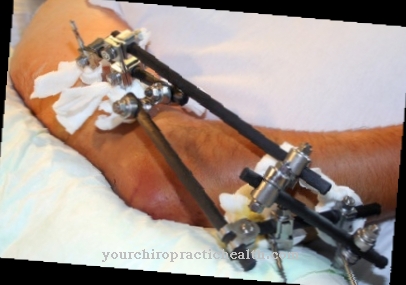

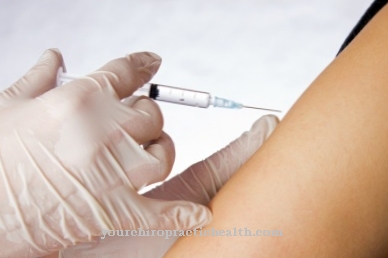







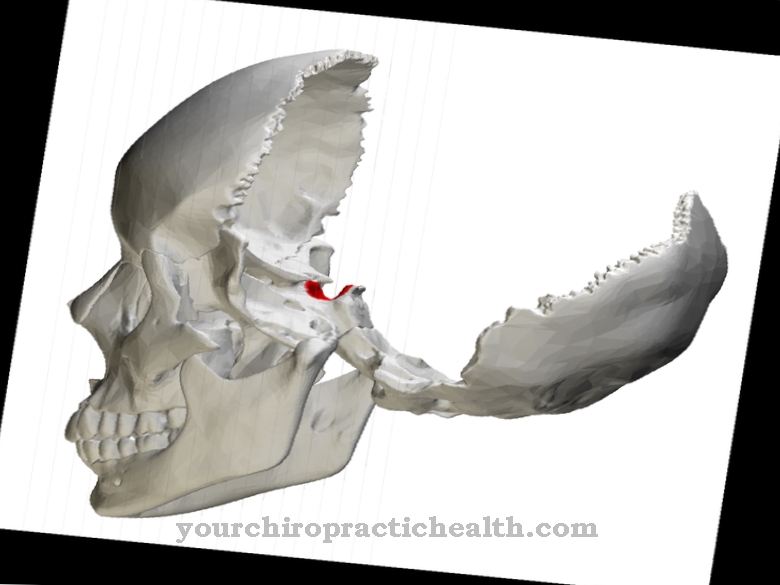
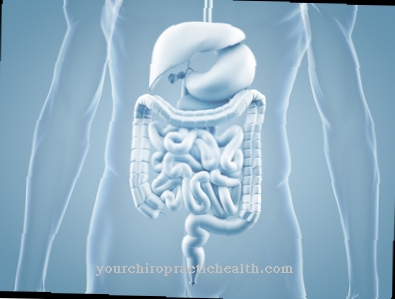


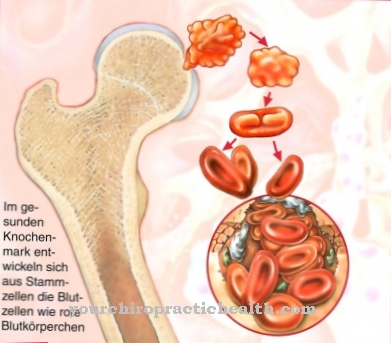






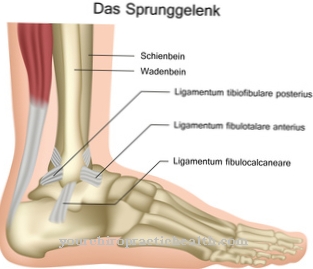

.jpg)

.jpg)
